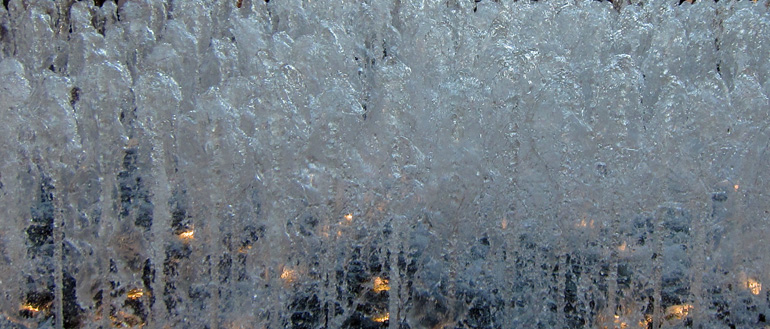Out & About:
Svelte Lake
Thursday, 30 June 2011
There are lots of things that I haven’t done, but one thing that I can check off that list is Swan Lake. I saw the ballet for the first time last night. I had such a perfectly good time that I’m rather glad that it wasn’t a great one. I get to save seeing a great performance of Swan Lake for another time.Â
Of course I know the score just about by heart. I’ve seen the ballet on video, not to mention in countless movie clips ranging from Far From Heaven and The Deep End to Poupées russes. (I’ve just ordered a DVD of the Fonteyn-Nureyev performance that I used to own on LaserDisc). More to the point, I’ve seen Darren Aronofsky’s deconstruction/reconstruction, in Black Swan, which I’ll come back to later. But it was Jennifer Homans’s Apollo’s Angels that convinced me that I ought to see the ballet on stage as soon as possible. That meant the end-of-season American Ballet Theatre production.Â
Having seen ABT’s Raymonda a few years ago, and read a review or two of ABT productions down through the ages, I knew where to expect last night’s performance to fall short. The sets and, to a lesser extent, the costumes were showy but dramatically inconsequent, bordering on kitsch. (There is a perfectly dreadful maypole in the first act that shows off the company to embarrassing disadvantage. Also: any first-time visitor would be pardoned for inferring from the Queen Mother’s getup that there will be vampires.) And corps de ballet would be a concept with no visual onstage correlative.Â
Perversely, the worst corps dancing was that of the swans. I don’t expect the robotics of Busby-Berkeley synchronization, but I believe, as Homans suggests, that the proper execution of the steps ought to produce a pleasing coordination of arms and legs. Nowhere is a lapse on this front more regrettable than in Swan Lake, where the swans are anything but decorative backdrop, willi-style, to the romance of a prince and an enchanted beauty. Times dance critic Alistair Macaulay writes that Odette’s “swan-maiden subjects become chorally wrapped up in this love story, and their involvement makes this ballet like no other. They share her hopes and fears; their destiny hangs on hers.” Indeed, unless the swans are as eloquently tragic as their queen, then the showpieces, such as the danse des cygnets and Odette’s thirty-two fouettés, take on the air of stunts.Â
I knew from Macaulay’s review that the final act of Swan Lake would not astonish me. (Tchaikovsky’s amazing send-off, however, did, as it always does, and my eyes were flooded.) I had to ask, though, if a better production than Kevin McKenzie’s would have made much of a difference. Like the singers of the Metropolitan Opera Chorus, the ABT corps seemed comprised of somewhat independent soloists. I’d almost rather do without. What I didn’t expect was the damp sparklessness of Marcelo Gomes’s dancing with Paloma Herrera. Strong and limber in solos, or even when engaged in mime, Mr Gomes demonstrated less than no interest in Ms Herrera, who, for her part, was as excellent as it is possible to be without being quite great. I don’t fault her; the atmosphere was not conducive to greatness. It’s entirely possible that she would have been great, doing exactly as she did, on a less fussy stage.Â
The evening was far from disappointing, however, thanks to the svelte pace established by conductor David LaMarche. Notwithstanding the absence of romantic fire onstage, and compensating greatly for the sloppiness of the corps, the orchestra poured forth a current of generous accompaniment that supported the secondary soloists (who, after all, do a great deal of the dancing — the pas de trois in Act I and the national dances in Act III.) Here there was something like real elegance, with a connection among the dancers that corresponded to what could be heard from the pit.Â
I haven’t watched The Black Swan lately, but I recall that the choreographer, Thomas (Vincent Cassel), says that a production of Swan Lake has to be great; otherwise, why bother? Indeed, it was my doubt that Swan Lake could be great that led me to avoid it in the days of my ignorant youth. I thought that it must be all fustian and feathers (and whatever complaints I’ve made about ABT’s version, it’s certainly much, much better than that). Black Swan assured me that Swan Lake could be great, and it showed a way of making it great, by working the seam of madness that is implicit from the very beginning of Tchaikovsky’s score.
One girl is enchanted and spends her days as a swan. Another is enchanted and spends her days as a ballerina. Black Swan suggests not only that there isn’t much difference between these fates — thus making Swan Lake a meditation on the art of ballet at its most demanding — but that either enchantment is likely to lead to or require madness, making healthy everyday affections impossible. (There’s probably something unhappy about Prince Siegfried, too, or he would have found satisfaction at his mother’s court. This is Matthew Bourne’s insight.) Is it possible to find happiness in disciplined transcendance? Plumping for an answer one way or the other is a mistake; it’s enough for a work of art to let the tension vibrate. I expect that this is exactly what Black Swan will inspire choreographers to do with Swan Lake. Now that I’ve seen a respectable performance of the old interpretation, I’m ready for the next step.Â

